NCOs Vital to Delivering Ready, Agile Force
NCOs play a key role in building a force that’s ready to sustain itself on a complex and dispersed battlefield, a panel of senior enlisted leaders said March 26.
NCOs play a key role in building a force that’s ready to sustain itself on a complex and dispersed battlefield, a panel of senior enlisted leaders said March 26.
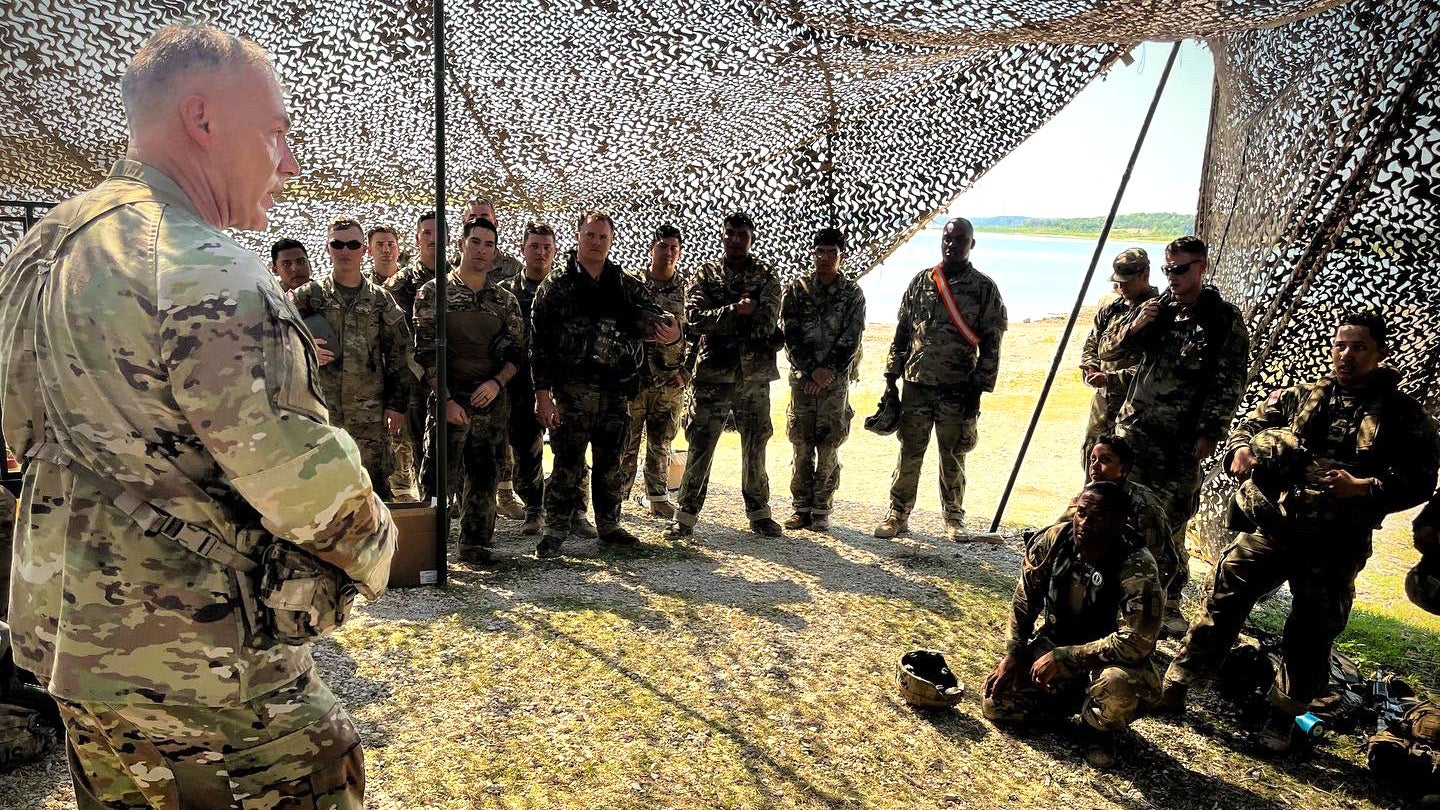
The Army Reserve is building to compete with its adversaries and prepare for a complex future battlefield, the component’s senior enlisted leader said.
“I’m pretty confident that the Army Reserve is in a strong position and ready to meet the challenges of the future,” Command Sgt. Maj. Andrew Lombardo said March 6 during an Association of the U.S. Army Noon Report webinar.

Command Sgt. Maj. Andrew Lombardo, the Army Reserve’s senior enlisted leader, will speak March 6 during a webinar hosted by the Association of the U.S. Army.
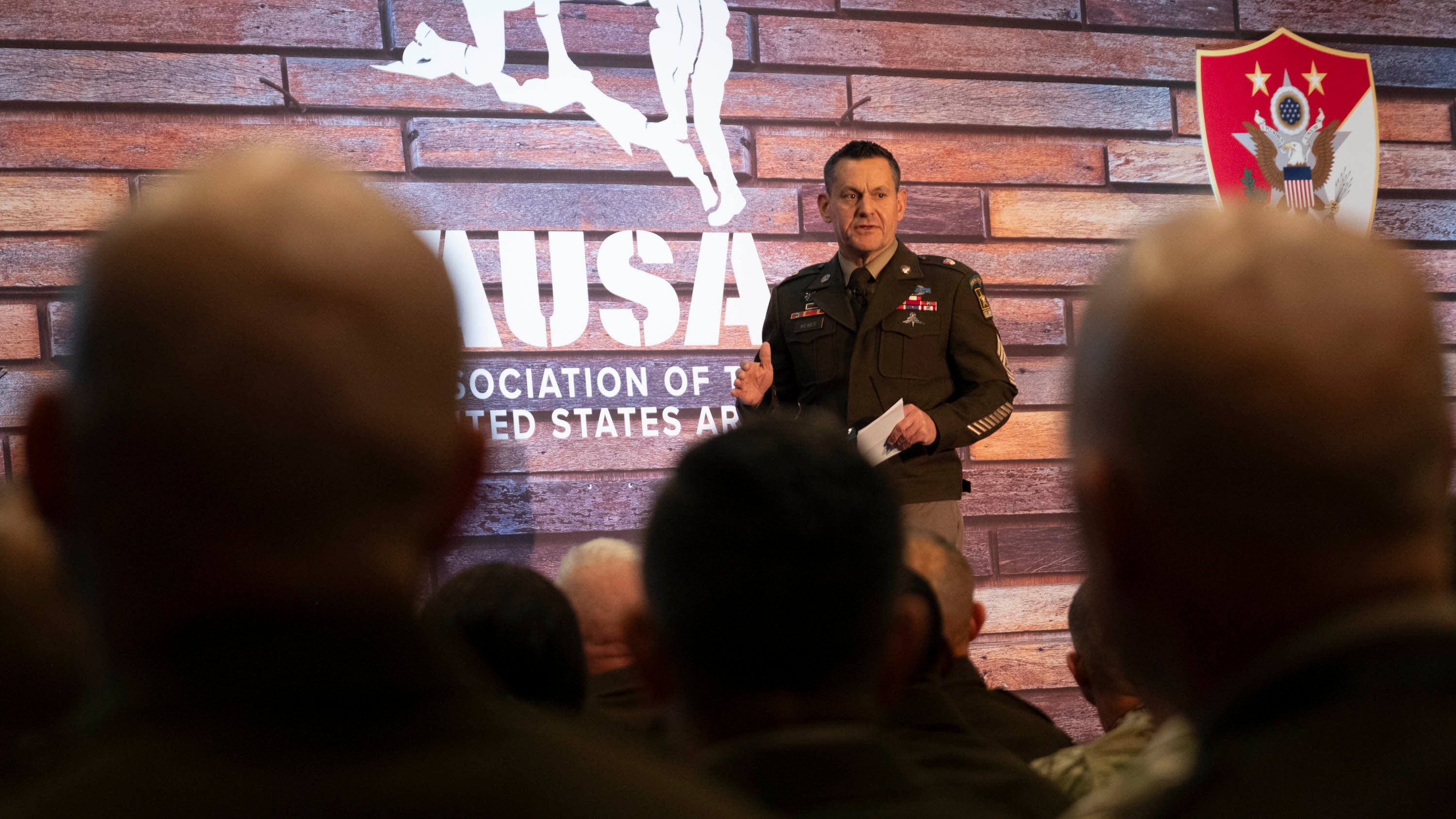
NCOs drive change across the Army, and they will have a critical role as the service renews its focus on standards and discipline, Sgt. Maj. of the Army Michael Weimer said.
“We’re going to get after standards and discipline,” Weimer said Oct. 11 at the Association of the U.S. Army’s 2023 Annual Meeting and Exposition. “I can’t go anywhere in the Army and not have a conversation about standards and discipline.”
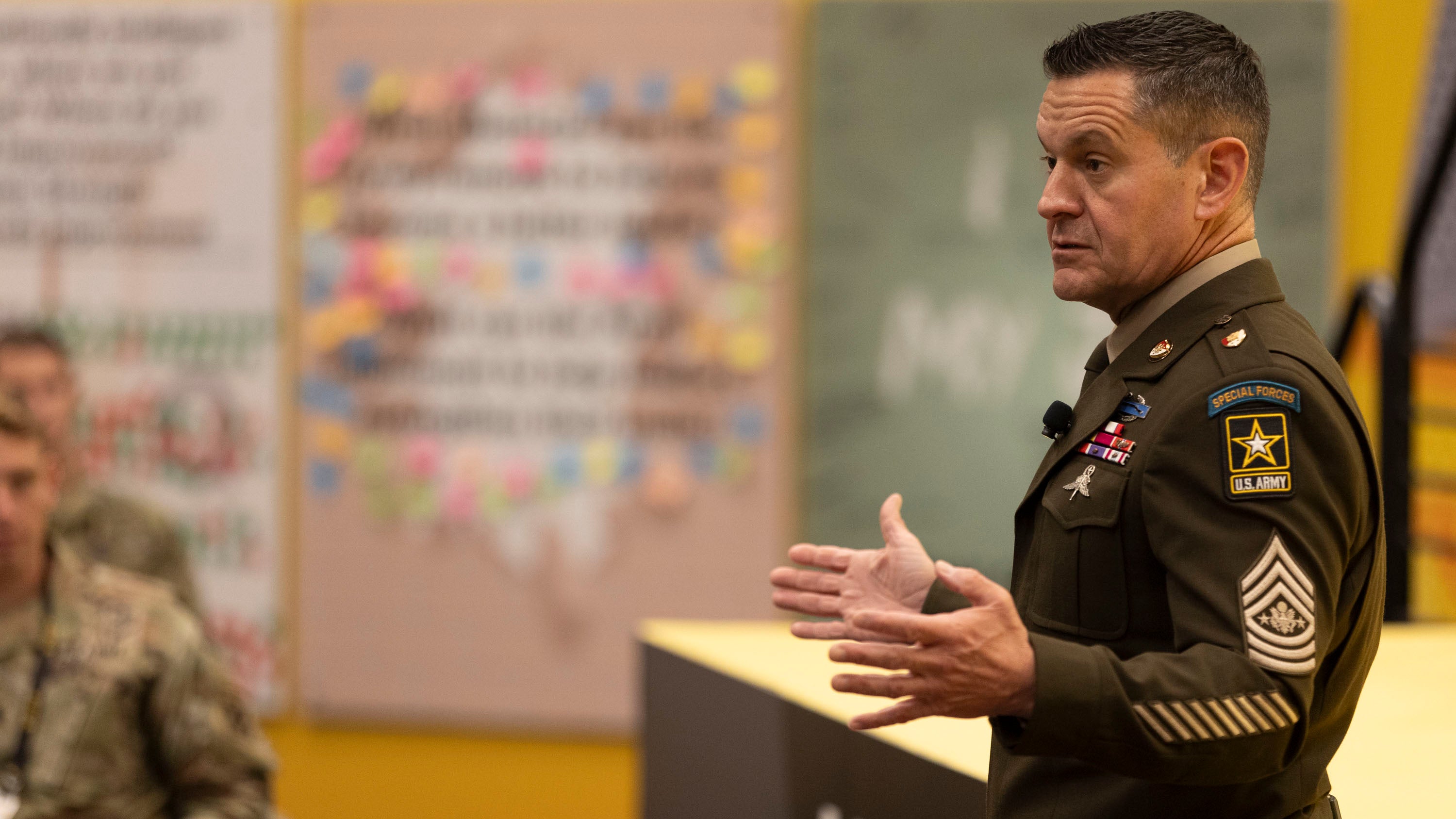
People and technology are both critical to the Army of the future, but the latter can never replace the former, Sgt. Maj. of the Army Michael Weimer told a group of mid-grade officers and NCOs.
“I do believe, and I always will, that people are our competitive advantage against all our adversaries,” Weimer said. As the force becomes more tech-driven, his concern is that soldiers will “compromise on the basics.”
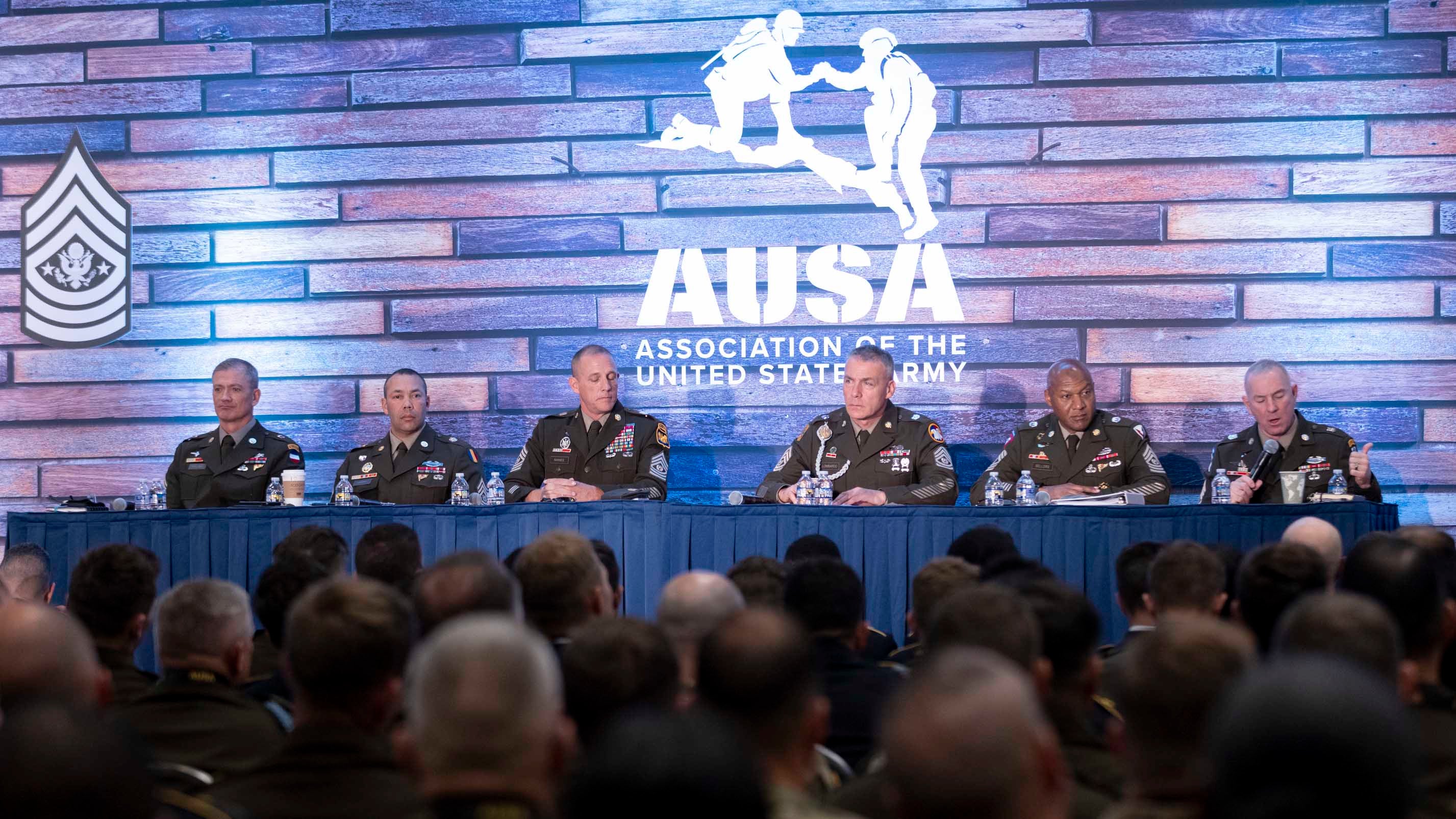
The 17th sergeant major of the Army encouraged all NCOs to get advanced degrees in warfighting and master the basics of soldiering.
“I worked on my bachelor of science, finished it online, but what we’re really going to focus on is a master’s degree in warfighting, because if we’re called upon with the adversaries we have now, that’s the one that’s going to matter the most,” Sgt. Maj. of the Army Michael Weimer said Oct. 10 at a senior NCO forum during the Association of the U.S. Army’s 2023 Annual Meeting and Exposition in Washington, D.C.
Throughout its history, the U.S. Army has been proud of its sergeants, and rightfully so.
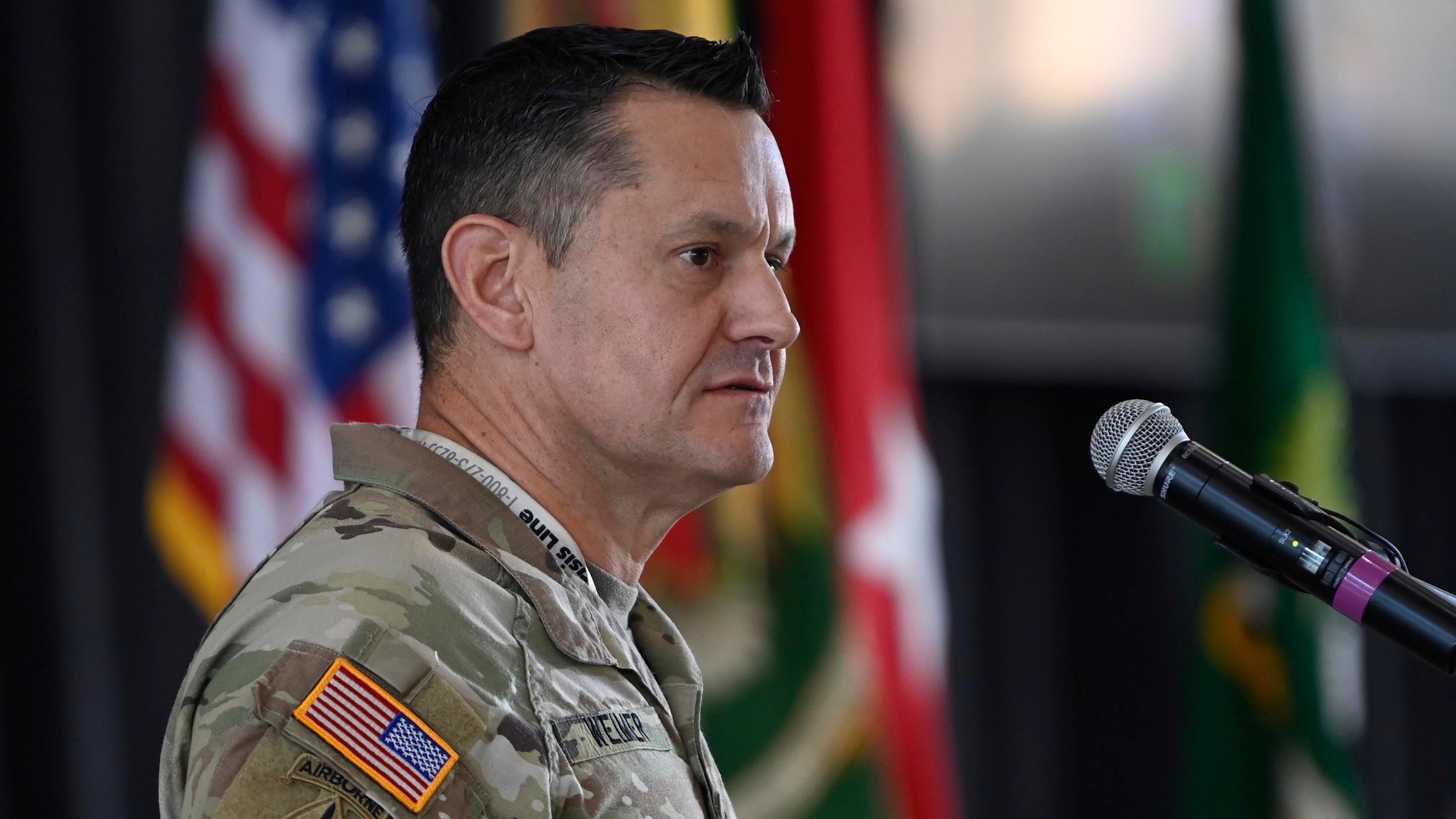
Command Sgt. Maj. Michael Weimer, a Special Forces soldier with more than 20 years of experience in Army special operations, has been selected to become the 17th sergeant major of the Army.
Weimer will succeed Sgt. Maj. of the Army Michael Grinston this summer. Grinston has served as the Army’s senior enlisted leader since August 2019.
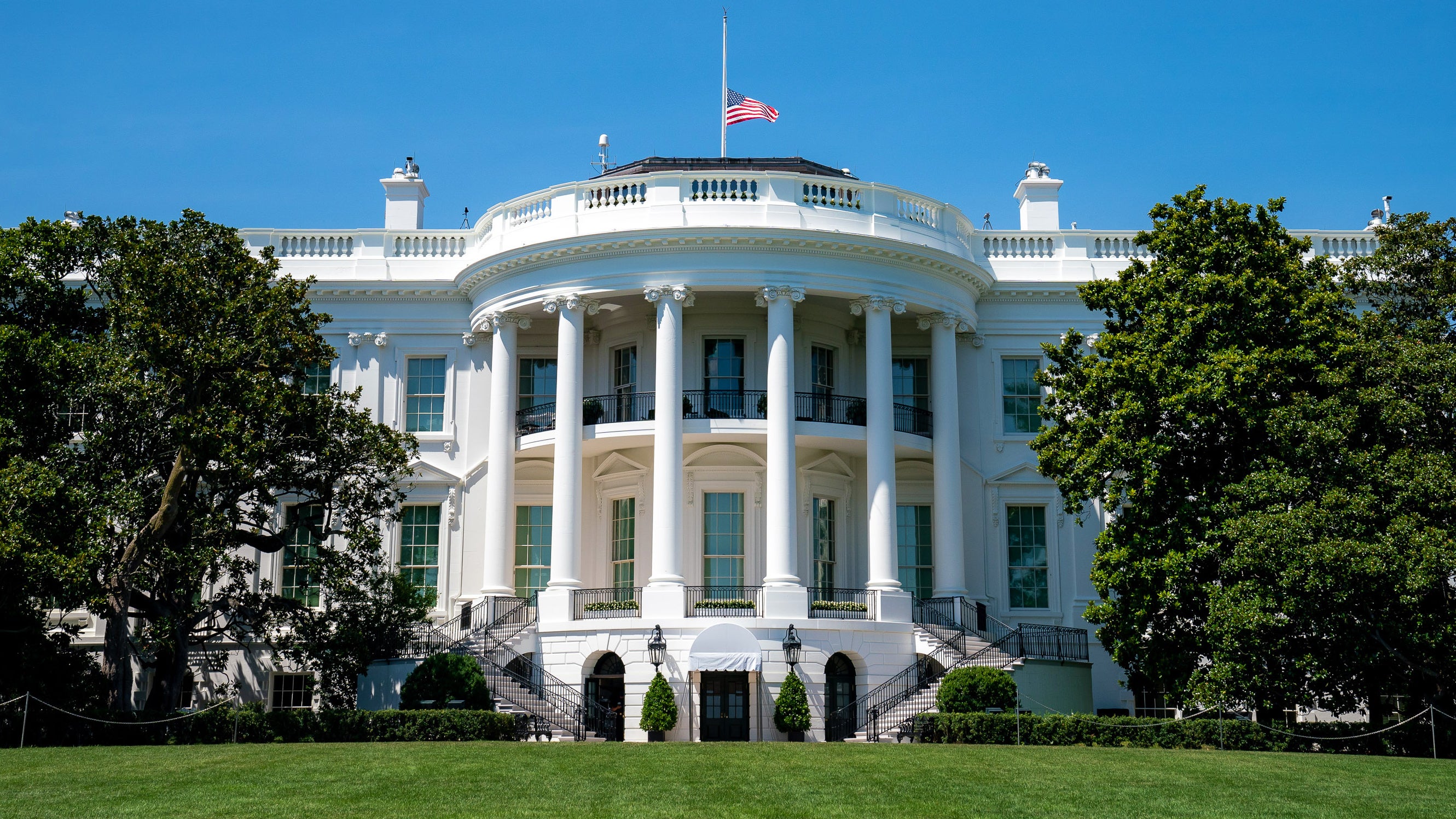
A special operations NCO who has deployed 15 times and a former Army Ranger have been appointed to the 2022–2023 class of White House Fellows, a highly competitive program for leaders who are committed to public service.
Founded in 1964, the White House Fellows program offers “exceptional young leaders first-hand experience working at the highest levels of the Federal government,” the White House said in its announcement.
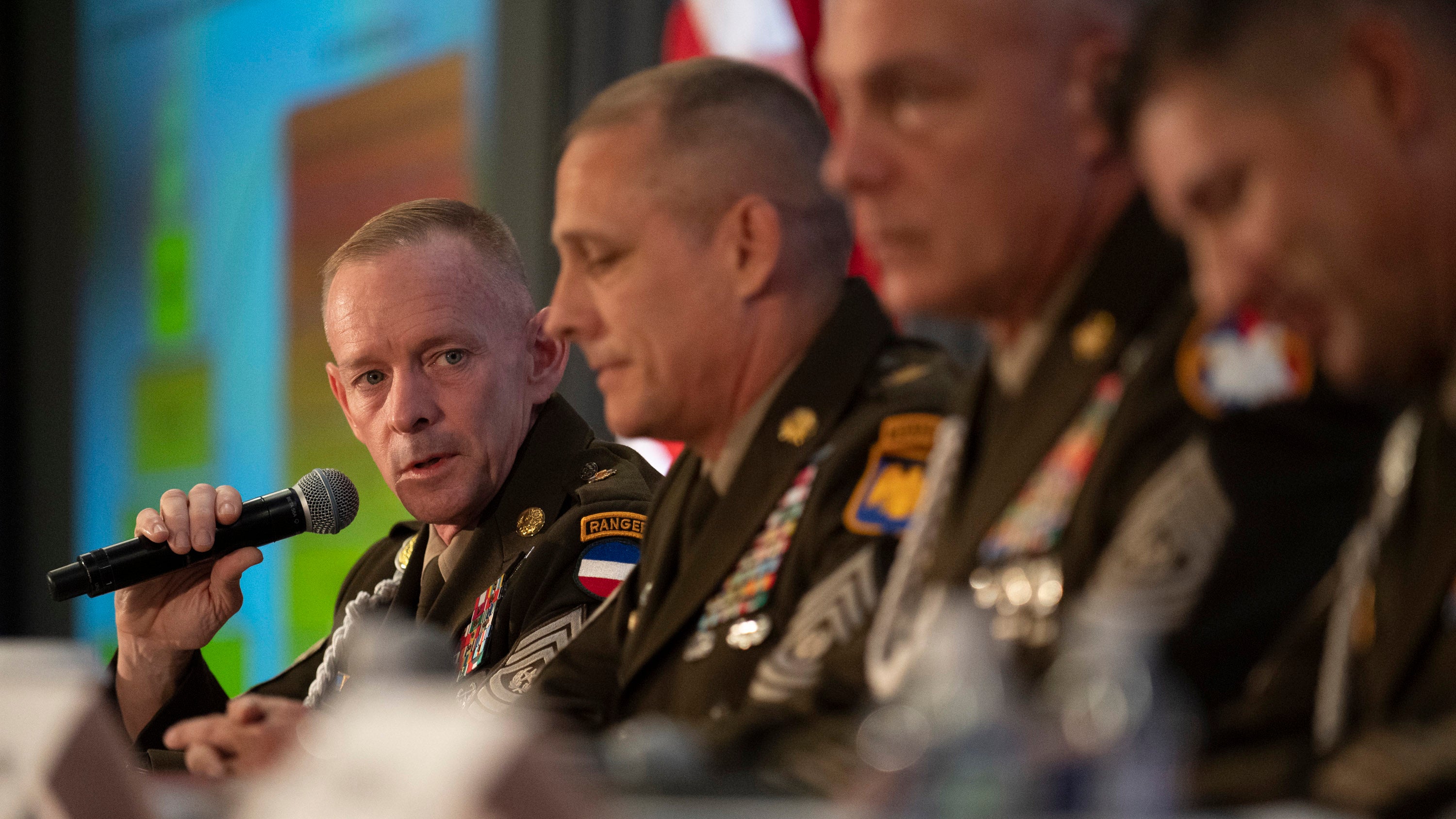
It’s time for a return to land navigation training, said some of the Army’s top enlisted leaders, who agree that despite advances in technology, soldiers must master the most basic task: how to get where they’re going.